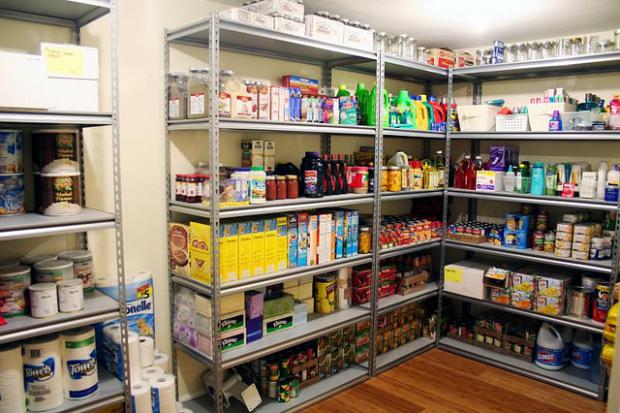
Breaking News
 Argentina Moves to Let Banks Offer Bitcoin and Crypto Services
Argentina Moves to Let Banks Offer Bitcoin and Crypto Services
 We're One Storm Away From Disaster
We're One Storm Away From Disaster
 Think a Dairy Cow Will Tie You Down? Here's the Truth.
Think a Dairy Cow Will Tie You Down? Here's the Truth.
 Students challenge auto industry with modular EV you can fix yourself
Students challenge auto industry with modular EV you can fix yourself
Top Tech News
 This tiny dev board is packed with features for ambitious makers
This tiny dev board is packed with features for ambitious makers
 Scientists Discover Gel to Regrow Tooth Enamel
Scientists Discover Gel to Regrow Tooth Enamel
 Vitamin C and Dandelion Root Killing Cancer Cells -- as Former CDC Director Calls for COVID-19...
Vitamin C and Dandelion Root Killing Cancer Cells -- as Former CDC Director Calls for COVID-19...
 Galactic Brain: US firm plans space-based data centers, power grid to challenge China
Galactic Brain: US firm plans space-based data centers, power grid to challenge China
 A microbial cleanup for glyphosate just earned a patent. Here's why that matters
A microbial cleanup for glyphosate just earned a patent. Here's why that matters
 Japan Breaks Internet Speed Record with 5 Million Times Faster Data Transfer
Japan Breaks Internet Speed Record with 5 Million Times Faster Data Transfer
 Advanced Propulsion Resources Part 1 of 2
Advanced Propulsion Resources Part 1 of 2
 PulsarFusion a forward-thinking UK aerospace company, is pushing the boundaries of space travel...
PulsarFusion a forward-thinking UK aerospace company, is pushing the boundaries of space travel...
 Dinky little laser box throws big-screen entertainment from inches away
Dinky little laser box throws big-screen entertainment from inches away
 'World's first' sodium-ion flashlight shines bright even at -40 ºF
'World's first' sodium-ion flashlight shines bright even at -40 ºF
Grasshopper Nation: Planning For Those Who Aren't Prepared

This article has been generously contributed by Adam Taggart and was originally published at Peak Prosperity.

Take a moment to reflect on all the people you care about who aren't reading this article. Or sites like this, which wrestle with the implications of limits to growth and the concerning unsustainability of the economic and natural systems our society depends upon.
How many of your family members, good friends, and neighbors simply choose to ignore the messages from those of us alarmists on the "doomer" side, and live life trusting that tomorrow will always look and feel pretty much like today? Most of them? All of them?
Look, it's understandable. Humans aren't wired well to respond to future risk that isn't visible as an immediate threat. And temperamentally, we prefer good news over bad, so we seek to overweight the former and discount the latter. Who wants to stress out about what "might" happen tomorrow, anyways — can't we just enjoy life today?
The rift between the preparedness-minded and those not is age-old, as fables like Aesop's The Ant & The Grasshopper date at least as far back as the 5th century BCE.
We spend our focus on this website engaging the "ants", the empirically-minded folks who look at the data and concur that there is sufficient possibility of one or several crises (economic, energy-related, environmental — or a combination of such) occurring in the next several years. And that taking advance action is prudent.
But the ants are the minority.
Forget about planning for the more esoteric risks posed by faulty monetary policy or energy economics — 72% of Americans don't even have a basic emergency response kit in place should an ordinary kind of disaster strike (power outage, hurricane, tornado, earthquake, etc).
The simple reality is that, if you're investing your energies towards building resilience against potential hardship, most of those around you likely aren't.
In the midst of your efforts, are you planning for their lack of preparedness?
Grasshopper Nation
The data shows us that the vast majority of Americans are not ready to deal with even minor setbacks.
In January of this year, Bankrate.com released survey findings that revealed that only 37% of Americanswould be able to cover an unexpected expense (e.g., auto repair, medical bill) of $1,000 with savings. The remaining 67% would have to borrow from friends and family, cut spending elsewhere, or use credit cards to come up with the funds.



